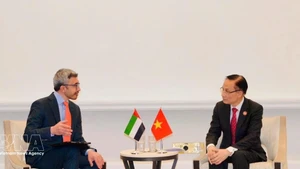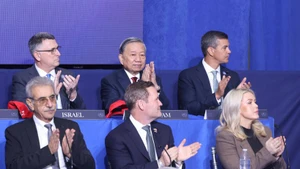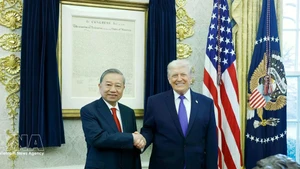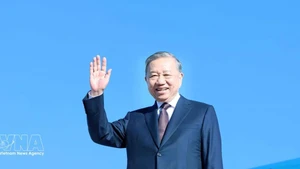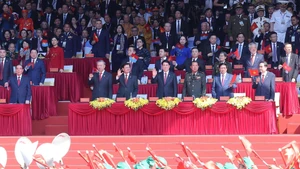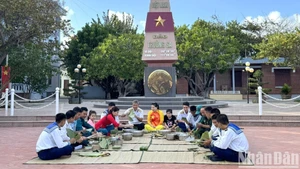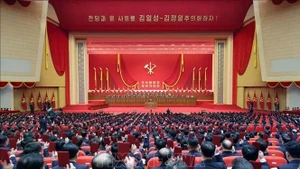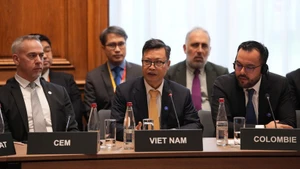The ceremony was attended by Nguyen Trong Nghia, Politburo Member, Secretary of the Party Central Committee (PCC) and Head of the PCC’s Commission for Information, Education and Mass Mobilisation; and Vice President Vo Thi Anh Xuan.
Speaking at the ceremony, Ho Quoc Dung, Secretary of the Provincial Party Committee, stated that with its important strategic location as a gateway connecting the South Central Coast and the Central Highlands, Quy Nhon Port (Binh Dinh Province) was chosen by the Party Central Committee and President Ho Chi Minh as one of the main areas with 300 days for the assembly and transfer of troops, cadres, students, and compatriots from the Central and Central Highlands regions to the North.
The Secretary emphasised this was a great honour and a heavy responsibility entrusted by the Party and President Ho Chi Minh to the Party Committee, government, and people of Binh Dinh Province. Although the time was not long, it was a crucial period, as it was not only simply the assembly of forces to the North but also a time to take advantage of preparations for the Party Committee and people of the Inter-Zone V provinces and Binh Dinh to enter a new stage of revolutionary struggle.
Over 300 historic days, under the leadership of the Party Central Committee, the Inter-Zone V Party Committee, the Party Committee and people of Binh Dinh overcame many difficulties and challenges, organising the reception and sending off of more than 20,000 cadres, soldiers, compatriots, and students from provinces and cities in the region to assemble in the North according to the plan, he noted.
Seventy years have passed, but the event of the 300-day troop transfer and assembly to the North still retains its historical value, he said, adding that it is a valuable lesson in the spirit of patriotism, solidarity, and determination of the Vietnamese military and people for the cause of national liberation. It is a lesson in preserving, building, and developing resources for the revolution and organising and implementing vital tasks during the turning points of the nation’s history.

